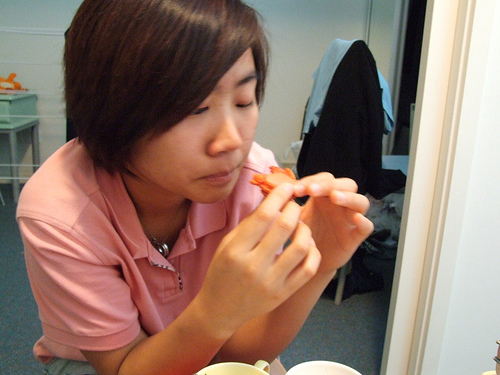What are the big principles or values around which you organise your life? Most of us have these, whether or not we’ve named them. Perhaps your big values include things like family, career, self-care, or helping others. We might prioritise money, power, or prestige. Ignatius faced the question of his big principles and values when he was recovering from a battle wound in bed. Perhaps he never really faced that question before. Until that point, his values were fame, women, and money. It took a debilitating injury and a lot of time in bed to begin to examine what he really wanted his life to be about.
How do we discern what big principles and values to centre our lives on? First, ask yourself what you’re currently prioritising. What have I been holding as important and central to my life? How do I feel about these things? Are they leading me toward a full life with God?
 Examples of Guiding Principles
Examples of Guiding Principles
Questions like this can be very helpful. So can looking at the values and principles others hold as important. For Ignatius, his first principle was service to God—really the first principle that should be the arc over our other big principles. And as Ignatius’ experience in recovery transformed his heart, we see how he shifted his values toward things that would lead him to fulfil his first principle. First, he discovered the value of poverty, a kind of simplicity that ensured his reliance on God throughout his life’s journey. Second, his principle of helping souls manifested in the various kinds of ministries he did and became an important guiding principle in the Jesuit order he formed. Finally, Ignatius saw education as important to his own formation and ability to help souls. He returned to school, got a theology degree, and impressed the importance of education on his Jesuit brothers.
For Jesus, we could name many guiding principles, but three stand out to me. First is unconditional love, seen in the way he was present to his relationships and how he welcomed everyone without exclusion. Second, Jesus valued prayer, not only teaching his followers how to pray, but often retreating to solitary prayer with his Father. These times often happened before he moved on to another place, as if they were moments of prayerful discernment for his ministry. He even valued it so highly that he sometimes stopped healing people so he could retreat to prayer. Finally, his primary mission was to draw people to his Father. All Jesus desired to do was to help people come to know a loving God, revealed through him, waiting to embrace them with unconditional love.
At this moment in my life, one of my guiding principles and values is simplicity. This means decluttering my life in ways that bring things back to the essentials. This can happen in my physical spaces, but also spiritually. It means saying no to things that don’t add deep value to my life. Often doing less means spending time on what is truly important. Sabbath has also been a priority for me. This means making daily time for prayer, giving myself (thanks to my generous wife Sarah) a bi-monthly sabbath day where I am “off duty” from life’s demands and can spend it in prayer, reading, doing a hobby, or taking a walk. (Sarah also gets a sabbath day every two months). It also means finding other times for intentional rest and soul-care. Finally, my marriage has priority in my life. I realise that a solid, joy-filled, friendship-based marriage affects the other parts of my life, including my other two guiding principles.

As Christians
What guides us as Christians in this examination? Ignatius’ Principle and Foundation would be a great starting place to remind us that our first principle should be God. Beneath that “umbrella principle” we might want to name no more than three guiding principles or values. We can look at the stories of others we admire for ideas, as I did above. We can also look to the Gospel and see what emerges for us from what Jesus lived and taught. We might also consider our vocations and roles. How does being a spouse, a parent, a friend, or a citizen affect what I prioritise in life? I might also consider my dreams, desires, and hopes for life, which can inform what I organise my life around.
Questions for Examination
Our guiding principles may change throughout our life. Here are some additional questions you may wish to ask yourself as you examine your life’s priorities at this moment in time:
- When do I feel most myself? – Name these things and then note what values arise from these things.
- What leads to life? – An important question that really leads us toward our True Self in God.
- What needs to be deprioritised? – It is important to allow certain things to fall back so we can be true to what we name as priorities and guiding principles.
- What is saving my life right now? – This was a question someone once asked Episcopal priest Barbara Brown Taylor. For me it’s sabbath.
Here’s what happens when you name your big principles and values: You actually prioritise them. To organise your life around them means they feed everything you do. They inform your decisions, big and small. Prioritising a sabbath day for me means I schedule nothing on the day that I’ve chosen! If I schedule a date night with my wife, I don’t make excuses to schedule something else because my marriage is a primary value in my life, not to mention my primary vocation. If we have more than three guiding principles, we can tend to deprioritise some or make excuses to let something go. This is why I value simplicity. Get to what is truly essential in your life.
Any time is a good time to do a “values examen” or a “life principles” examen, especially when you sense something is “off”. Maybe you feel like prayer has moved to the back burner in your life, or your relationships, or something else you would otherwise hold as important. Perhaps God is inviting you to something new.
Related posts:
Listen to the podcast version of this post…









Excellent. Thought-provoking and inspiring as always. Blessings to you as you serve, my friend.